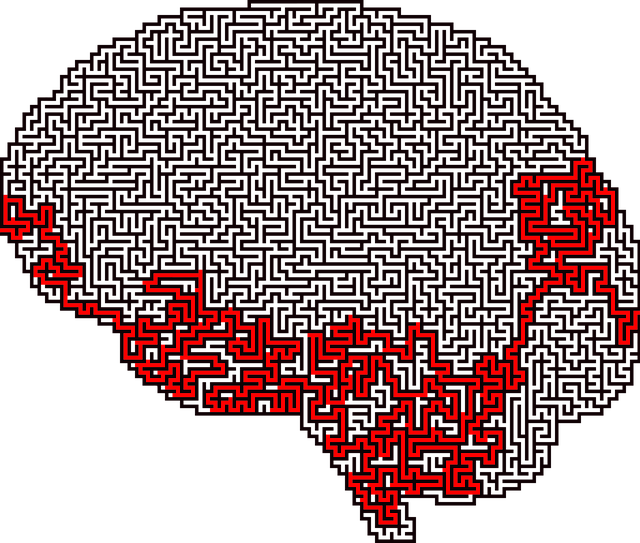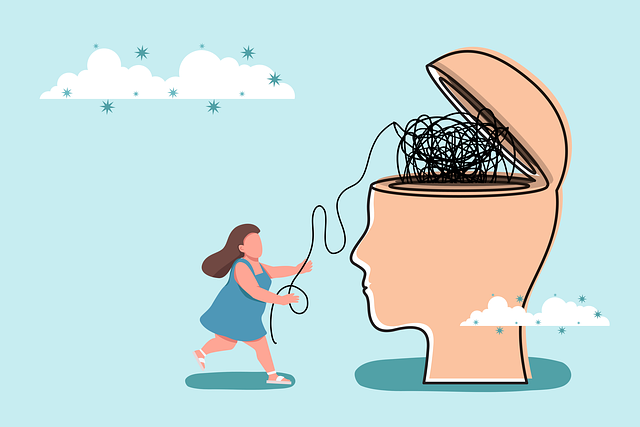Play therapy, leveraging creative play activities in a safe environment, effectively addresses mental health concerns by fostering emotional expression and positive thinking. Evaluating its effectiveness requires both qualitative (e.g., interviews) and quantitative (e.g., surveys) methods to capture emotional experiences and track progress over time. Quantitative assessments measure changes in symptoms, mood, and functioning, while qualitative ones uncover hidden traumas and tailored interventions. Integrating feedback loops enables continuous improvement, aligning with Mind Over Matter principles for personalized Coping Skills Development, particularly beneficial for therapy for play therapy.
Evaluating mental wellness programs is crucial for ensuring their effectiveness. This comprehensive guide explores various evaluation methods, focusing on play therapy as a unique and powerful therapeutic approach. We delve into assessment techniques, from quantitative tracking of progress and outcomes to qualitative insights that enrich client understanding. By integrating feedback loops, mental wellness programs can continuously improve, offering better support through evidence-based practices like play therapy.
- Understanding Play Therapy: A Brief Overview
- Assessment Techniques for Mental Wellness Programs
- Quantitative Evaluation Methods: Tracking Progress and Outcomes
- Qualitative Approaches to Enhance Client Insights
- Integrating Feedback Loops for Continuous Improvement
Understanding Play Therapy: A Brief Overview

Play therapy is a specialized approach designed to help individuals process and express their emotions through creative play activities. Unlike traditional talk therapies that rely heavily on verbal communication, play therapy utilizes toys, games, art supplies, and other play materials as tools for emotional exploration and healing. This therapeutic method recognizes that children, and even adults, often communicate better through play, making it a powerful technique for mental wellness programs.
Understanding the power of play as a form of therapy requires recognizing its ability to enhance mood management by providing a safe and non-threatening environment where individuals can explore their feelings. Additionally, cultural sensitivity in mental healthcare practice is integral to effective play therapy, ensuring that the therapeutic process respects and incorporates the client’s cultural background and beliefs. By fostering positive thinking through play, this approach not only addresses current mental health concerns but also lays the foundation for long-term emotional resilience and well-being.
Assessment Techniques for Mental Wellness Programs

Mental wellness program evaluations require a multifaceted approach to accurately gauge their effectiveness. Assessment techniques for such programs should encompass both qualitative and quantitative methods. Qualitative assessments, including individual or group interviews, can provide valuable insights into participants’ experiences and perceptions of therapy for play therapy, empathy building strategies, and resilience-boosting activities. These conversations often reveal subtleties and nuances that numerical data might miss, offering a deeper understanding of the program’s impact on emotional well-being.
Quantitative methods, such as surveys and standardized measures, are crucial for tracking changes over time and comparing outcomes across different groups. By utilizing tools designed to assess symptoms of anxiety, depression, and stress, along with public awareness campaigns development metrics, evaluators can quantify improvements in mental health status. This data-driven approach allows for evidence-based decision-making, ensuring that mental wellness programs continue to evolve and meet the needs of their participants effectively.
Quantitative Evaluation Methods: Tracking Progress and Outcomes

Quantitative evaluation methods play a crucial role in understanding and tracking the progress of mental wellness programs, particularly in therapy for play therapy. These methods involve numerical data collection and analysis to measure various aspects of a client’s mental health journey. For instance, therapists can utilize standardized assessments and surveys to gauge changes in symptoms, mood, and overall functioning over time. By quantifying these improvements, professionals gain valuable insights into the effectiveness of the program.
For example, tracking the frequency and intensity of emotional outbursts in children through structured observations or self-report scales can demonstrate the impact of play therapy interventions on their ability to regulate emotions. Similarly, measuring the development of confidence-boosting skills or the adherence to self-care routines can provide tangible evidence of progress. These quantitative evaluations are essential for refining therapy approaches and ensuring that empathy-building strategies remain aligned with the evolving needs of clients.
Qualitative Approaches to Enhance Client Insights

Qualitative approaches play a pivotal role in enhancing client insights within mental wellness programs. Therapy for play therapy often involves in-depth interviews, focus groups, and observations that delve into individuals’ experiences, beliefs, and behaviors. These methods allow therapists to gain a nuanced understanding of clients’ emotional landscapes, personal challenges, and coping mechanisms. By fostering open dialogue and creative expression, self-awareness exercises can bring to light hidden traumas or unmet needs, enabling tailored interventions.
Moreover, qualitative evaluations facilitate the exploration of emotional regulation strategies that resonate with diverse populations. Public awareness campaigns development benefits from these insights, as it helps create targeted messaging that addresses specific mental health concerns. Through such approaches, therapists can identify effective practices and tailor programs to better support clients’ unique journeys towards improved mental wellness, ultimately fostering a more inclusive and impactful therapeutic environment.
Integrating Feedback Loops for Continuous Improvement

Integrating feedback loops into mental wellness programs offers a powerful mechanism for continuous improvement. By collecting regular input from participants and stakeholders, programs can identify areas needing enhancement and adapt their approaches accordingly. This iterative process aligns with Mind Over Matter principles, fostering an environment of growth and resilience. Play therapy, for instance, can benefit from such feedback, refining techniques to better support children’s emotional development.
This proactive approach goes beyond mere compliance with Mental Health Policy Analysis and Advocacy guidelines; it ensures programs remain relevant and effective. Through feedback integration, the focus shifts from static outcomes to dynamic progress. Coping Skills Development becomes not just a teachable concept but an evolving practice, tailored to meet the unique needs of each individual within the program’s scope.
Evaluating mental wellness programs is a multifaceted process that combines quantitative tracking of progress and outcomes with qualitative insights into client experiences. By integrating these methods, professionals can gain a comprehensive understanding of program effectiveness and make informed improvements. Play therapy, in particular, offers unique benefits for clients, as highlighted by this article. Through assessment techniques, feedback loops, and both quantitative and qualitative evaluation methods, mental wellness programs can enhance their impact, ensuring better outcomes for those seeking support. This approach not only improves current services but also serves as a foundation for future advancements in the field of therapy, particularly play therapy.









